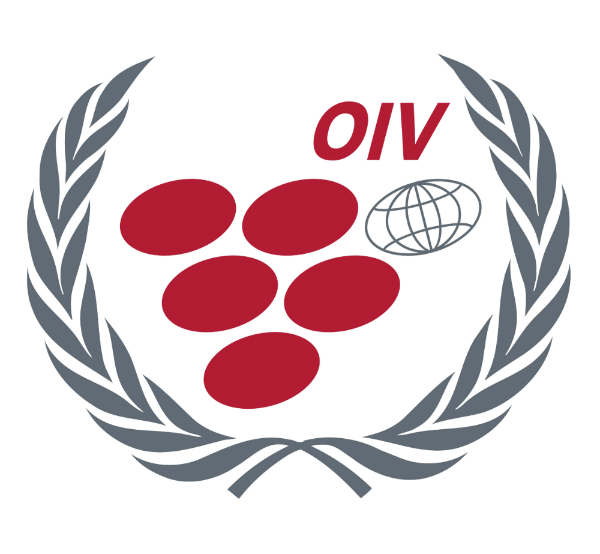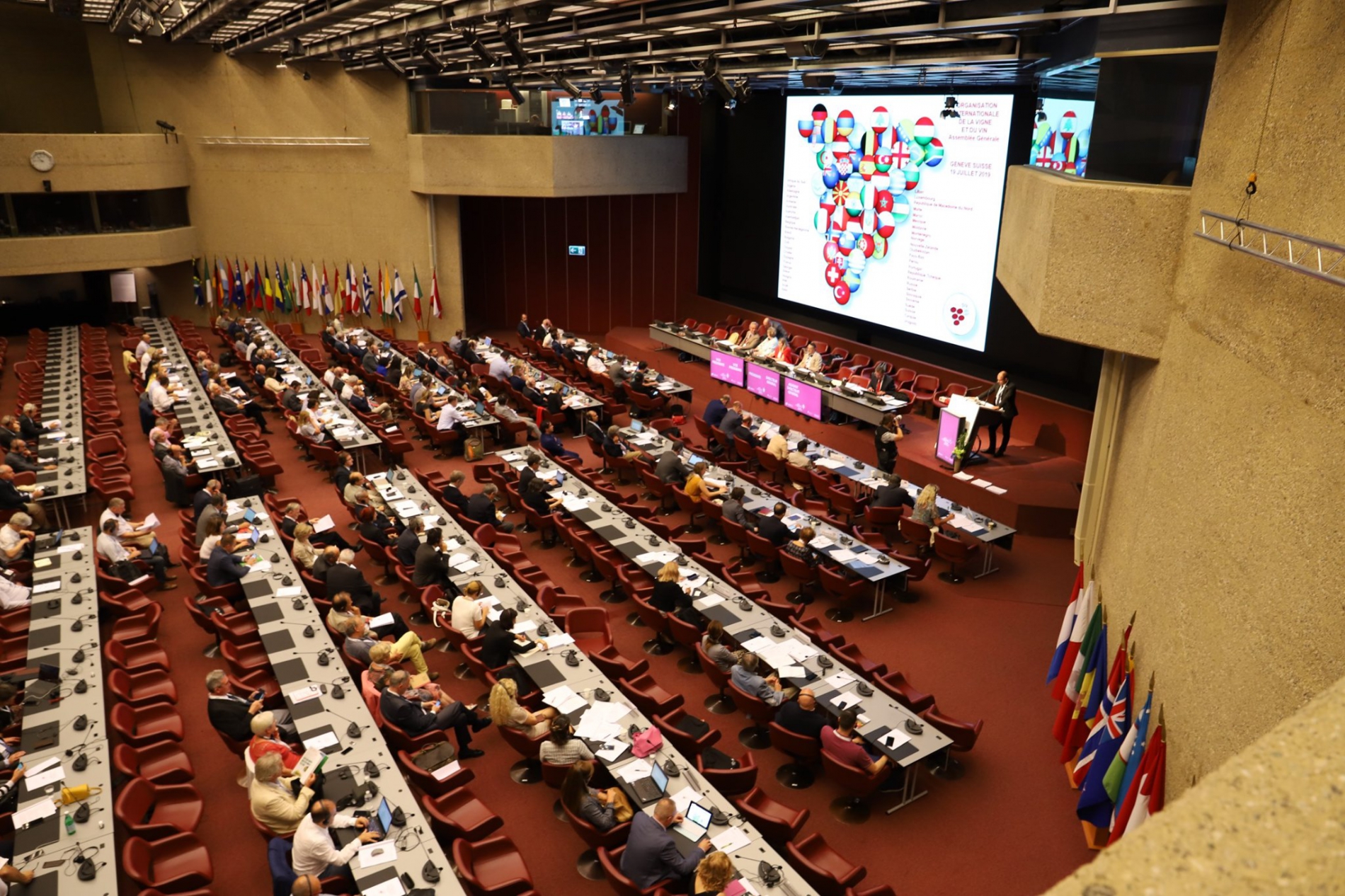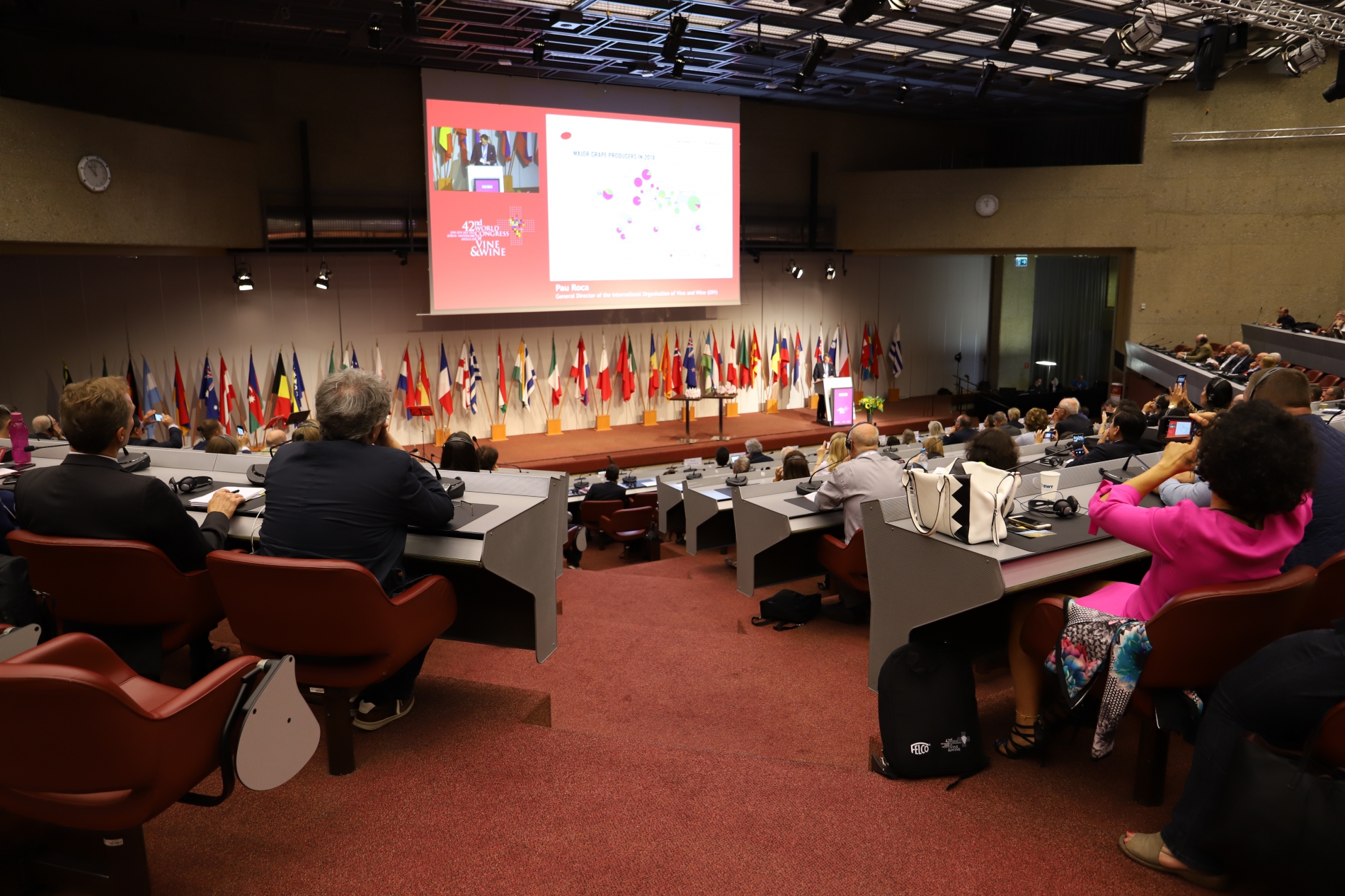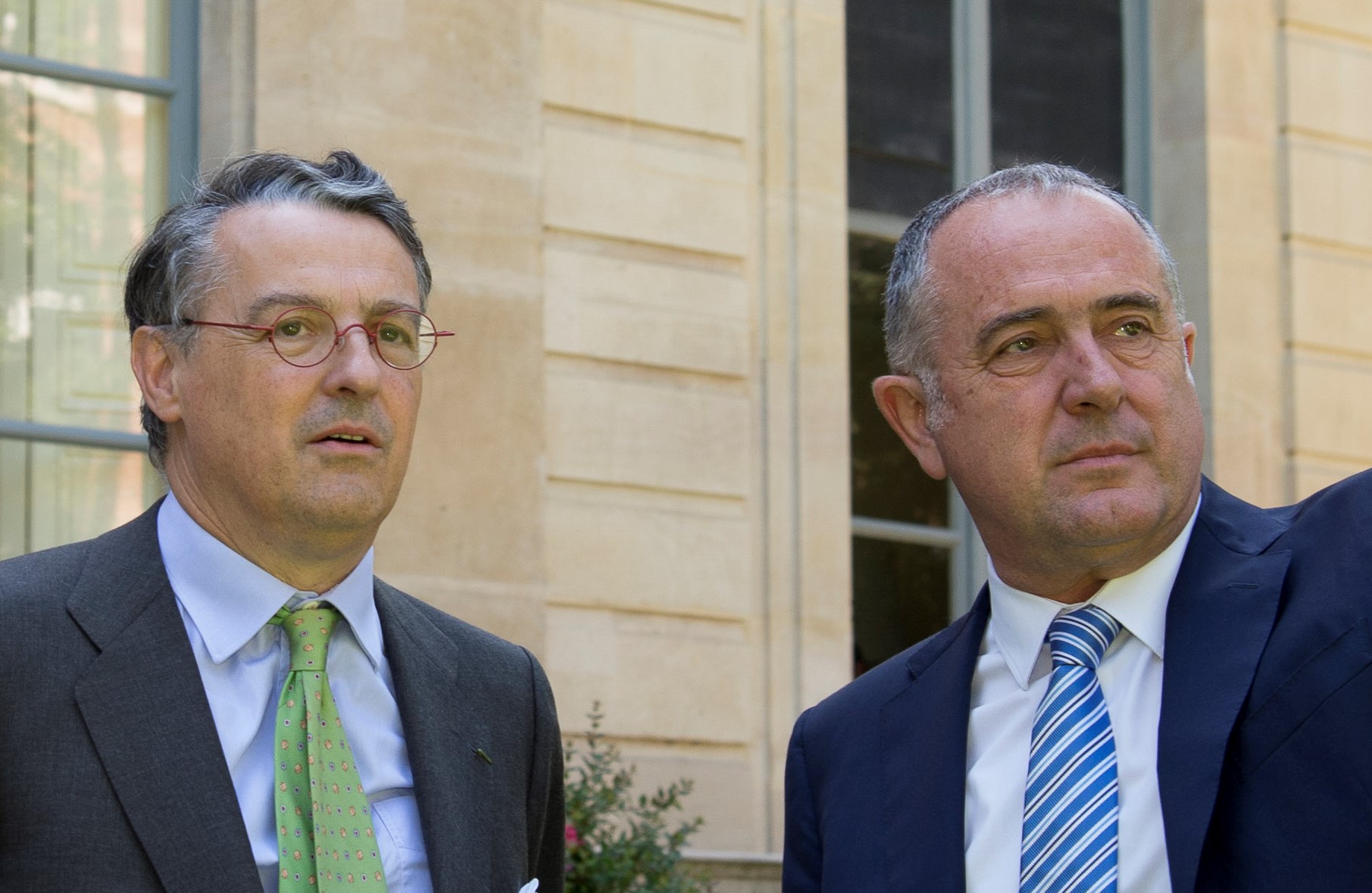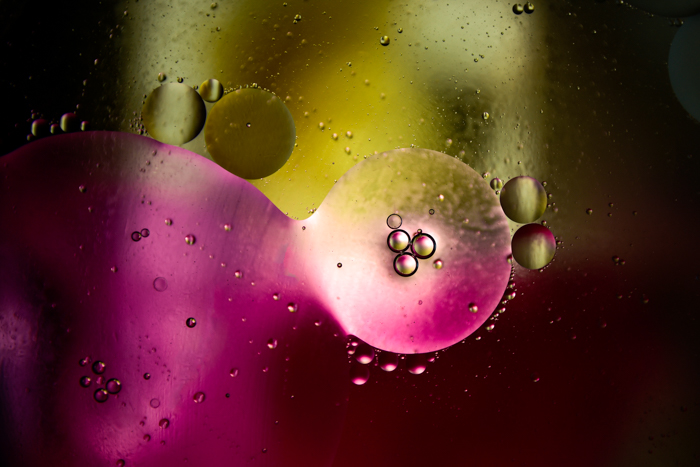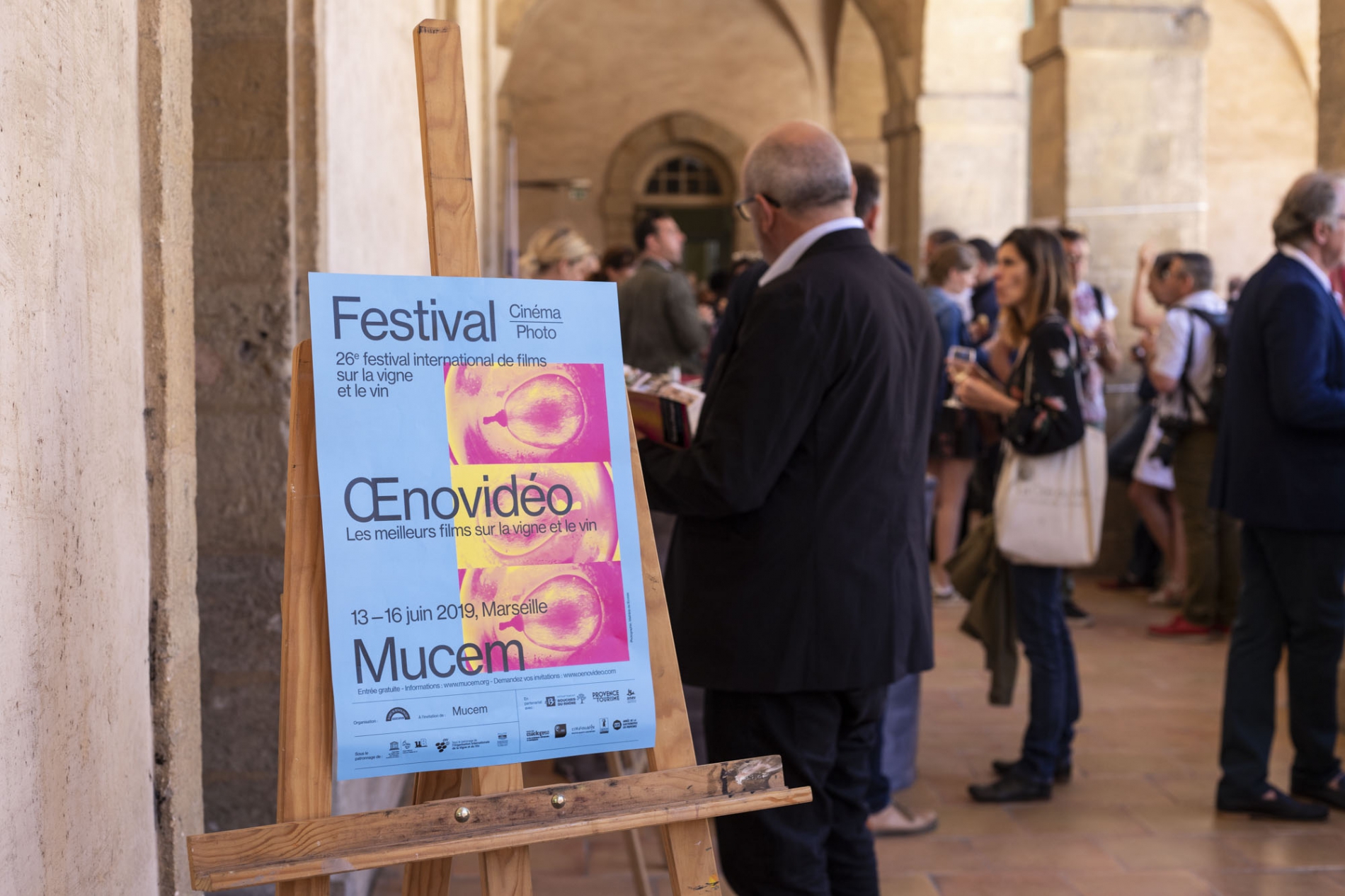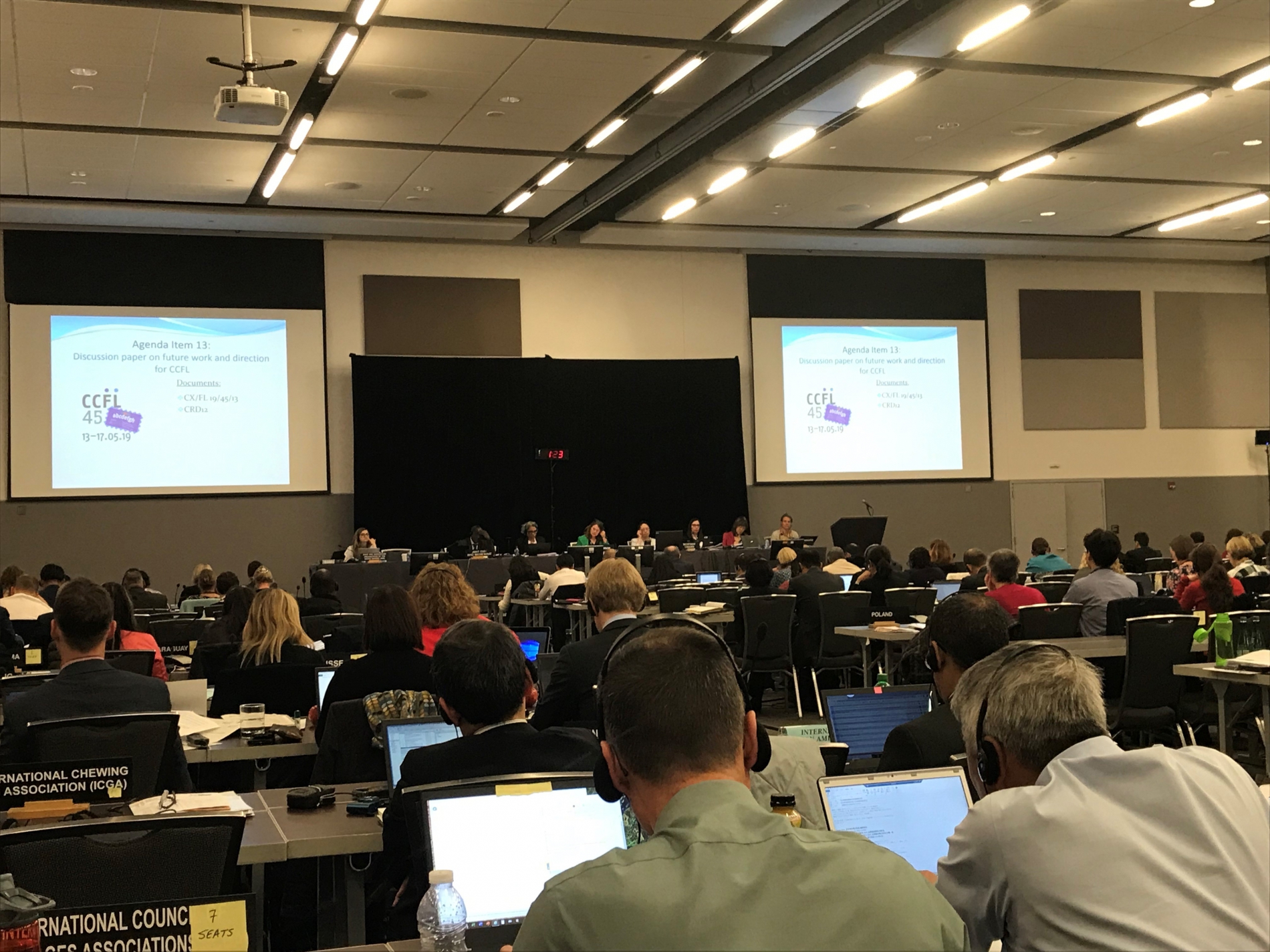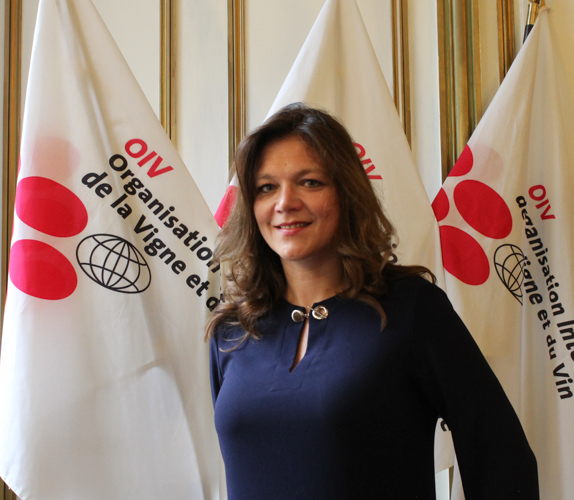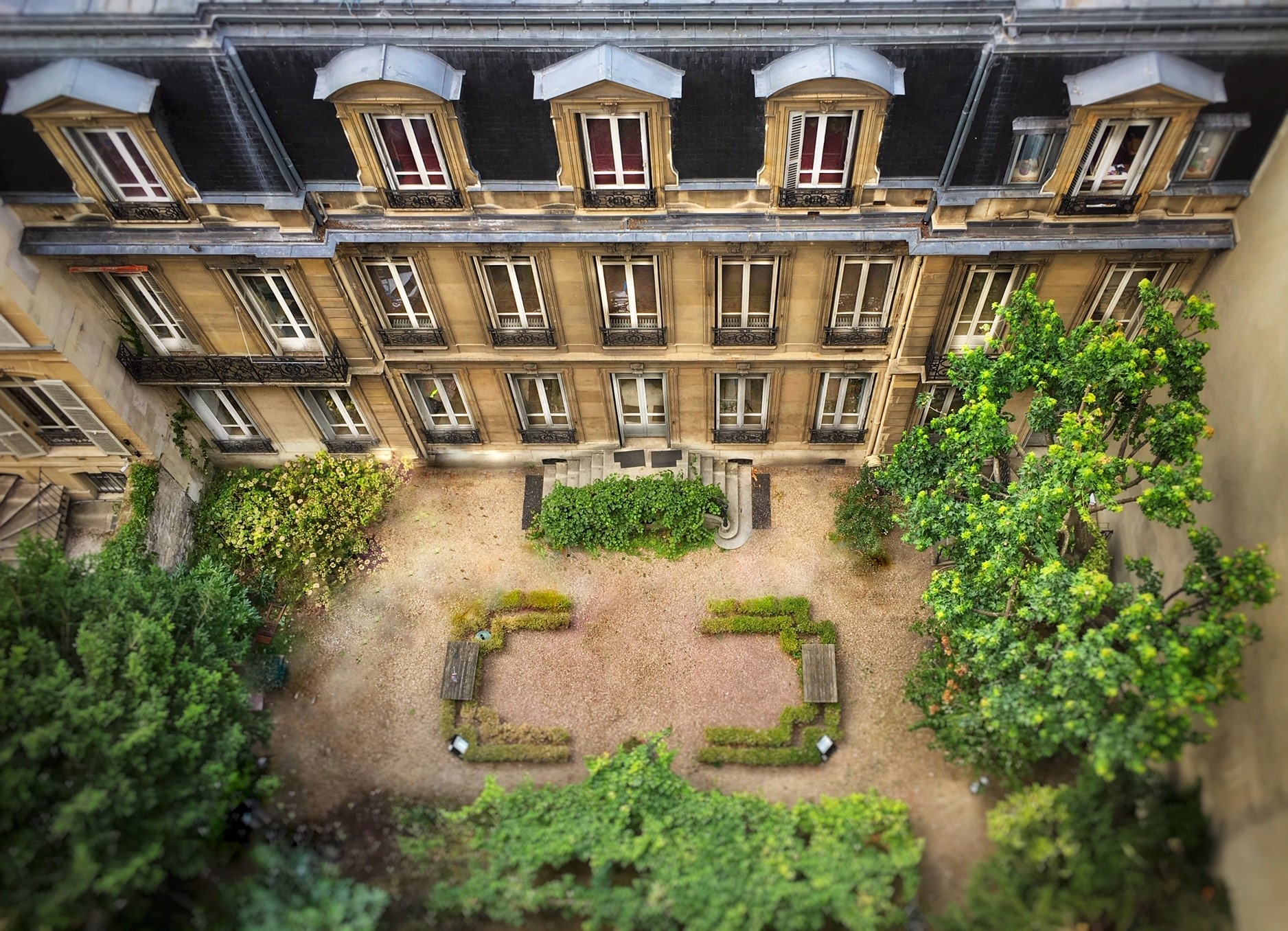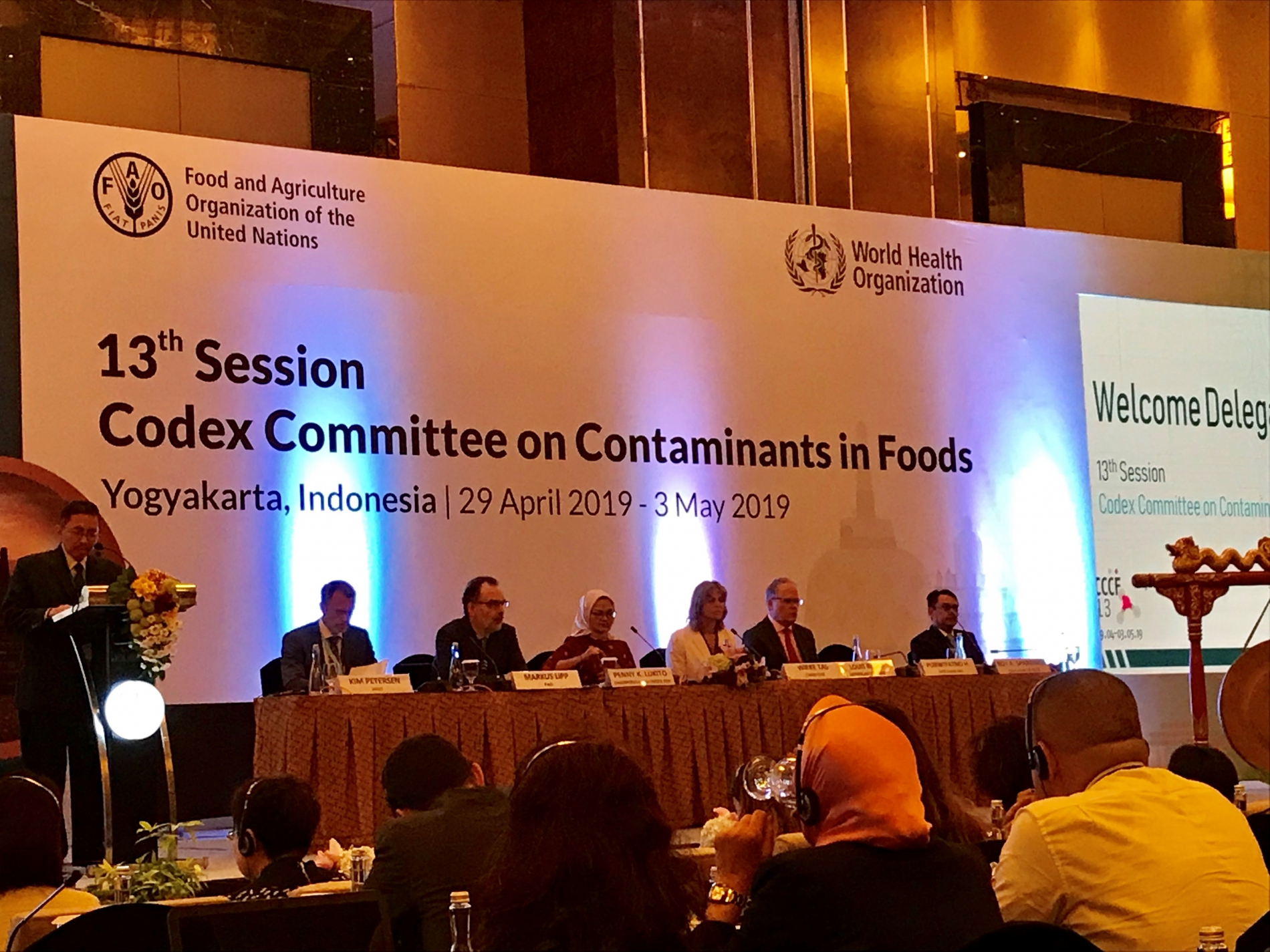24 июл 2019
On July 17 in Geneva the International OIV Jury awarded 11 Prizes and 9 Special Mentions among 51 works in competition and 15 countries who were represented: one superb OIV Awards vintage 2019!
ViticultureOIV AwardVine Roots / WingerdwortelsEben Archer, Dawid SaaymanPublication IGWS - Institute for Grape & Wine Sciences(EN + Afrikaans, Free Web access)Special MentionHandbook for Irrigation of Wine Grapes in South AfricaPhilip Albertus MyburghPublication IGWS - Institute for Grape & Wine Sciences(Free Web access)
Viticulture and EnologyOIV Award Winorośl I Wino. Wiedza i praktyka (część 1 i 2)Roman Myśliwiec, Ewa Wawro, Wojciech BosakEdition Fundacja Galicja Vitis
EnologyOIV Award Red Wine TechnologyAntonio Morata, coordinateur / coordinatorEdition Elsevier Inc.
EconomyOIV Award The Palgrave Handbook of Wine Industry EconomicsAdeline Alonso Ugaglia, Jean-Marie Cardebat, Alessandro Corsi, coordinatorsEdition Palgrave MacmillanSpecial Mention Coffee and Wine: Two Worlds ComparedMorten ScholerEdition Troubador Publishing Ltd
HistoryOIV AwardLes petits vignobles. Des territoires en question (Moyen Âge-XXIe s.)Stéphane Le Bras, director of the collective workPublication Presses Universitaires de Rennes and Presses Universitaires François RabelaisSpecial MentionHunter Wine : A history (1828 – 1983)Julie McIntyre, John GermovEdition NewSouth Books (University of New South Wales, UNSW Sydney)
LiteratureSpecial Mention Sommelier à mots choisisPhilippe BourguignonWith the contribution of Jean SerroyEdition "Editions Glénat"
Fine Arts - PhotographySpecial MentionGiacomo Tachis - MescolavinBruno Bruchi, photographerAndrea Cappelli, authorEdition Carlo Cambi Editore with the collaboration of Edizioni Effigi with Fondazione ChiantiBanca
Discovering and Presenting WinesOIV AwardLanguedoc Roussillon södra frankrikes vinerBritt Karlsson, Bengt Rydén, Per KarlssonEdition Carlsson BokförlagSpecial MentionSkin Contact - Voyage aux origines du vin nuAlice Feiring(translated by Sophie Brissaud : « For the love of Wine »)Edition "Editions Nouriturfu"
Wines and TerritoriesOIV AwardItaliensk VinThomas Ilkjær, Paolo Lolli, Arne Ronold, Ole UdsenEdition Forlagshuset Vigmostad & BjørkeSpecial MentionVignes et Vins, paysages et civilisations millénairesRaphaël SchirmerEdition "Editions Glénat"
Monographs and Specialised StudiesOIV AwardRoche et vin. À la découverte des vignobles suissesStein und Wein. Entdeckungsreisen durch die Schweizerischen RebbaugebieteEditor-in-chief Rainer KündigWith Jean-Claude Hofstetter, Christoph Meyer, Thomas MumenthalerEdition (FR + DE) AS VerlagSpecial MentionLa Noblesse du TonneauRoland Bugada, Gilles Bousquet, Frédéric Gillet, André ValognesEdition Editions de L'Escargot Savant
Atlas - AmpelographyOIV Award Atlante dei vitigni tradizionali di PugliaPierfederico La Notte, Francesco Civita, Stefano Raimondi, Anna SchneiderEdition CRSFA - Centro di Ricerca, Sperimentazione e Formazione in Agricoltura« Basile Caramia »Special MentionThe Cretan GrapesΚρητική ΑμπελογραφίαMaritina Stavrakaki - Μαριτίνα Σταυρακάκη Manolis N. Stavrakakis - Μανόλης Ν. Σταυρακάκης Edition (GR + EN) TROPI
Sustainable VitivinicultureOIV Award - EX ÆQUOTerroir - Wetter, Klima, BodenDieter Hoppmann, Klaus Schaller, Manfred StollEdition Eugen Ulmer VerlagEl sector vitivinícola frente al desafío del cambio climático. Estrategias públicas y privadas de mitigación y adaptación en el MediterráneoRaúl Compés López, Vicente Sotés Ruiz, coordinatorsEdition Cajamar Caja Rural
21 июл 2019
Thanks to the work of Switzerland’s Organising Committee and Scientific Committee, presided respectively by Simone de Montmollin and François Murisier, Geneva became the global capital of vitiviniculture from 15 to 19 July 2019. A member of the OIV since 1934, Switzerland had previously hosted the World Congress of Vine and Wine in 1955 and in 1977.The 17th General Assembly of the OIV concluded the week, with 18 new resolutions adopted.In the photo: Adrian Aebi, Assistant Director of the Swiss Federal Office for Agriculture (FOAG); Pau Roca, Director General of the OIV; Marco Romano, President of the Swiss Interprofessional Organisation of Vine and Wine (IVVS); Nathalie Fontanet, State Councillor for the Canton of Geneva; François Murisier, President of the Scientific Committee for the 42nd OIV Congress; Simone de Montmollin, President of the Organising Committee for the 42nd OIV Congress; Regina Vanderlinde, President of the OIV; Monika Christmann, Vice-President of the OIV; Luigi Moio, 2nd Vice-President (and Scientific Vice-President) of the OIV.Environmental expectationsWith the central theme of ‘Preservation and innovation: expectations at the environmental, economic and social level’, the discussions of the OIV Congress dealt with the following issues: climate change, to which vines are highly sensitive; value promotion of products (terroirs, origin, sanitary and food-grade quality of vine products, sugar content, allergens, etc.); and vine protection, with the highly topical question of input management. On the opening day of the Congress, the latter theme was also the object of a public conference entitled ‘A reasoned approach to inputs: scientific contributions and consumer perception’.The President of the OIV, Regina Vanderlinde, highlighted the excellent quality of the 348 technical and scientific presentations – some of which came from countries such as Japan or even Nepal.The Director General of the OIV, Pau Roca, who presented a report on the world vitivinicultural situation at the opening ceremony, praised Switzerland’s organisation of this remarkable Congress, which was the fourth biggest in terms of presentations in the last 10 years. Papers that have received author consent for publication will be available on the EDP Sciences Web of Conferences website in September.As part of the Organisation’s sustainable approach, this 42nd Congress was the first ‘paper-free’ OIV Congress. It was also the first time that all of the information regarding the events and scientific work presented was available for consultation via an app.The new OIV resolutionsThe 17th General Assembly of the OIV concluded the week of scientific work with the adoption of 18 new resolutions.The full texts of the resolutions adopted will shortly be published on the OIV websiteWith regard to climate change – a major concern for the sector – it is worth highlighting Resolution OIV-VITI 564B-2019, which defines polyclonal selection, as well as an OIV protocol for the protection and conservation of the intravarietal diversity and the polyclonal selection of vines for grape varieties with wide genetic variability.Consumer expectations and the reduction of the use of SO2 – issues also at the heart of debate within the sector – are the object of Resolution OIV-OENO 594A-2019. This Resolution establishes an innovative practice with the objectives, among others, of reducing the microbial loads of indigenous microorganisms (especially yeasts), and of reducing SO2 levels used in winemaking.A summary of all of the resolutions may be consulted here. The full texts of the resolutions adopted will shortly be published on the OIV website.The OIV Assembly also marked the passing of the baton from Switzerland to Chile, the host country for the future 43rd World Congress of Vine and Wine, to be held in Santiago from 23 to 27 November 2020.
12 июл 2019
The report covers the areas under vines, grape production, wine production and consumption, and wine import and export volumes.In 2018:•The world's winegrowing area represents 7.4 kha •Global grape production reaches 78 mt. Global table grape production is of 27.3 mt. Global dried grape production is of 1.3 mt. •World wine production (excluding juice and must) is estimated at 292 mhl. World wine consumption is estimated at 246 mhl. World trade in wine accounts for 108 mhl in volume and 31 bn EUR in value. The director general of the OIV has also presented the OIV Focus 2019: Industrial Use of Wine.Press ReleasePPT PresentationOIV 2019 reportOIV Focus 2019
Know more about the 42nd World Congress of Vine and Wine
03 июл 2019
During this interview, Pau Roca recalled the fundamental missions of the OIV and its specificities in a globalised sector marked by an international regulatory framework inspired by or founded on the recommendations and expertise of the Organisation. The Minister emphasised the importance of maintaining a balance between the different inclinations that may be expressed within the OIV. Didier Guillaume also conveyed the interest of France, as the host country of the Organisation, in marking the centenary of the OIV in 2024. This could see the convening of a Ministerial Conference on the major issues of the global viticultural sector.Pau Roca also indicated the importance of the strategic axes implemented by the OIV with regard to sustainability, which meet the expectations expressed by the Minister in terms of the development of the agro-ecological transition, for which viticulture should play a promoting role.Pau Roca with Didier Guillaume © Cheick Saidou / agriculture.gouv.fr.
02 июл 2019
2019 - OIV Research grant program in support of priority programme fieldsAll information here.
17 июн 2019
For this year’s edition, the auditorium of Mucem (Museum of the Civilizations of Europe and the Mediterranean) hosted 37 official projections, selected out of 144 films from 17 countries.The selected films presented a number of subjects, inviting the audience to a reflexion about how the current economic and societal model should be going towards a sustainable way of living, in respect with nature.The search for alternatives to phytosanitary products and pesticides in viticulture and the application of a biodynamic methodology of production were highlighted in several documentaries.The Grand Jury announcing the winners © Photo: Marine ThomasCertain films focused on the way young generations look at wine and the empowerment of women in vitiviniculture. Other themes on screen included Terroir, sustainability and ancestral methods of vinification.The 2019 Oenovideo Grand Prix was awarded to the Catalan film “’40 hectàrees. La terra i el Pagès” (40 hectares. The land and the farmer). This film tells the story of ten farmers from the wine-growing region of Penedès (Catalonia) talking about their daily work, their difficulties in facing Cava’s big producers and their relationship with the land. Consult the list of award winners (link in French).‘Wine, Vine and the sacred’ on picturesUnder the theme "Le vin, la vigne et le sacré : mystère d’une culture, divin nectar” (Wine, Vine and the sacred: a culture mystery, divine nectar)!" , the Terroir d'Images photography exhibition accompanying the festival for 14 years already, was held at the Vieille Charité cultural centre.80 photographies were officially selected, out of over 1500 works by amateur photographers and professionals from 15 competing countries.The Grand Prix winner will be revealed during the official Oenovidéo and Terroir d’Images awards ceremony, which will take place on Monday 14 October 2019 in the Palais du Luxembourg, Paris.© Photo: Marine Thomas
23 Май 2019
Highly contrasting positions It is already established that where alcoholic beverages are concerned, there is little harmonisation of national regulations with Codex labelling standards. During the discussion in Ottawa, the issue of the presence on the label of the alcohol content as well as energy values and nutritional information rapidly arose and brought contrasting national positions to the fore.Some delegations considered that the existing Codex texts sufficiently apply to alcoholic beverages and that given the different types of these products and the social values surrounding their use, it is preferable to deal with them at a national level rather than at the level of the Codex. However, other countries highlighted that it could be necessary to provide additional guidelines specific to the labelling of alcoholic beverages and – since alcoholic beverages are not ordinary foodstuffs – it would be important to inform consumers of the health risks associated with alcohol consumption by providing reliable information on the label. The OIV offers its expertise The delegate for the OIV, Scientific Coordinator Jean-Claude Ruf, drew the attention of the Committee to the complexity of labelling alcoholic beverages.Should the Codex come to undertake new work on this matter, the OIV has already specified that it would be necessary to define the minimum alcohol content of alcoholic beverages and to clarify the definitions of the products to which the standard would apply, in order to take into account the specificities of certain products. It is worth noting that the OIV has already carried out a revision of its own standard for the labelling of wines and wine-based spirits. Therefore, it would be useful for the potential discussions within the Codex to take into consideration the work of the OIV, which is the sole intergovernmental organisation collaborating with the Codex on this topic. Dossier to follow within the working groups formed by the Codex...45th session of the Codex Committee on Food Labelling (CCFL)
13 Май 2019
Azélina Jaboulet-VercherreOn 5 April 2019, the OIV Scientific and Technical Committee appointed the historian, medievalist, and specialist in the history of wine to the position of President of the International OIV Award Jury. Azélina Jaboulet-Vercherre is the first woman to be appointed to this position since the creation of the OIV Awards in 1930.2015 OIV Award ceremonyThe new President of the OIV Award Jury received her PhD in history from Yale and has been conferred degrees in no fewer than four disciplines, namely art history, archaeology, literature, and history.Her thesis focused on medical literature and natural philosophy from the twelfth to the fifteenth centuries.Apart from her studies in history, the author has developed her critical mindset thanks to her multidisciplinary educational background in art history and Anglo-American literature.Her innovative style when it comes to wine is entirely unique: she draws attention to the harmony between wine, art, music, emotion and feelings.Through her historiographical and cultural approach, she strives to promote renewal in the taxonomy of wine, going beyond conventional frameworks.This interdisciplinarity brings a unique dimension to the wine history classes and lectures/wine-tastings she delivers worldwide.A visiting professor at Sciences Po (Paris, Summer School), she was entrusted with the task of setting up the ‘Sciences Po Wine School’.The several years she spent teaching at the Hospitality Management School of Lausanne (EHL) and at the Changins School of Oenology Engineering provided her with the opportunity to develop her knowledge of Swiss wines.She is a wine judge and taster for a number of competitions.Azélina Jaboulet-Vercherre has received two OIV Awards (2013 and 2015) and an OIV Special Mention (2017). 2013 OIV Award in History, Literature and Fine Arts with: Florilège de Discours savants sur le Vin – Ecrire le Vin d'Homère à Rabelais2015 OIV Award in Wine and Health with:The Physician, the Drinker, and the Drunk – Wine’s Uses and Abuses in Late Medieval Natural Philosophy2017 OIV Special Mention in Literature with:Le vin, entre nature & cultureOIV AWARD JURYMEMBERS 2019President: Ms Azélina Jaboulet-Vercherre / France1st Vice-President: Ms Christiane Blum / Luxembourg2nd Vice-President: Mr Luís Carlos Ferreira Peres De Sousa / PortugalScientific Secretary: Mr Jean-Luc Berger (until October 2019) / FrancePresident of the OIV: Ms Regina Vanderlinde / OIV (Brazil)Director General of the OIV: Mr Pau Roca / OIV (Spain)Vice-Presidents of OIV Commissions and Sub-CommissionsMr Benjamin Bois / Viticulture / FranceMr Luigi Moio / Oenology / ItalyMr Tony Battaglene / Economy and Law / AustraliaMs Nuria García Tejedor / Safety and Health / SpainMr Luís Carlos Ferreira Peres De Sousa / Table grapes, raisins and unfermented vine products / PortugalMr Ondřej Mikeš / Methods of analysis / Czech RepublicFormer OIV Presidents (guest jury members)Ms Monika Christmann / GermanyMs Claudia Quini / ArgentinaMr Yves Bénard / FranceMr Peter Hayes / AustraliaMr Reiner Wittkowski / GermanyFind out more about the OIV Awards
12 Май 2019
At the last meeting of the OIV’s Executive Committee, Director General Pau Roca informed Member States that a new lease had been signed for a functional site in rue Monceau (in the 8th arrondissement of Paris), while laying the groundwork for a more suitable location to be found with France, in its capacity as host State of the Organisation’s headquarters. Located near Parc Monceau, the headquarters of the World Organisation for Animal Health (OIE), and a conference centre, the new headquarters will undergo some refurbishment work over the summer, which certain firms from the sector could support through sponsorship. For the remaining work, a call for interest has been issued in order to select suitably qualified firms. Many Member States have expressed their regret at leaving the historic headquarters, remembered as the place where the Agreement re-establishing the OIV was negotiated. But they have also called for a solution to find, between now and the OIV’s centenary in 2024, a permanent site for the headquarters, where the Organisation can continue to develop new activities and meet the challenges of the next century.
09 Май 2019
The Scientific Coordinator of the OIV, Jean-Claude Ruf, participated in the 13th CCCF session, which was held on 29 April-3 May 2019 in Yogyakarta, Indonesia.Among the items on the agenda for this session, the delegations from Member States present discussed the revision of the maximum limits on lead in food, in particular for wine. During the previous session in 2018, the OIV gave a speech indicating that the specific characteristics of certain types of wines should also be taken into account, such as fortified wines (a significant proportion of which would be excluded from international trade if the proposed limit was set at 0.05 mg/kg).Moreover, following the 2018 meeting, the CCCF decided to re-establish an electronic working group, presided by the United States, to work on the maximum limits (ML) for wine obtained from grapes and fortified wines obtained from grapes harvested after the date of establishment of the ML.For over a year, the OIV has been revising its own limits on leadDuring the 13th CCCF session in 2019, the Committee discussed the recommendations of the working group regarding the maximum lead limits for wines and fortified wines. During its discussions, the OIV drew the CCCF’s attention to the fact that an overly low limit could have significant consequences for international trade. Additionally, Jean-Claude Ruf indicated that the OIV had been undertaking a revision of its own limits on lead for over a year now and that the revised limits would be proposed for final adoption during the next OIV General Assembly in July 2019 in Switzerland. This proposal aims to set the limit at 0.10 mg/L in wines and 0.15 mg/L in liqueur wines. Finally the OIV encouraged the CCCF to take into account the OIV’s new work on this issue, in order to avoid any duplication or inconsistency in potential limits in the future.Following the discussions within the CCCF, even though some delegations were in favour of an ML of 0.05 mg/kg for wines, a consensus was reached for an ML of 0.10 mg/kg in wines and a specific limit of 0.15 mg/kg in fortified/liqueur wines. These limits apply to products produced after the date of establishment of the ML. These proposals will be submitted for adoption by the Codex Alimentarius Commission in July 2019.Consistency in standards and in international tradeThe fact that the OIV and the Codex Alimentarius are adopting the same limits for wines and fortified/liqueur wines is therefore to be applauded, for the consistency of standards and international trade.Furthermore, the Committee has also agreed to launch new work for 2020 on the revision of the Code of Practice for the Prevention and Reduction of Lead Contamination in Foods (CAC/RCP 56-2004), adopted by the Codex in 2004, in order to integrate methods of reduction of lead levels in food, including in wines.
